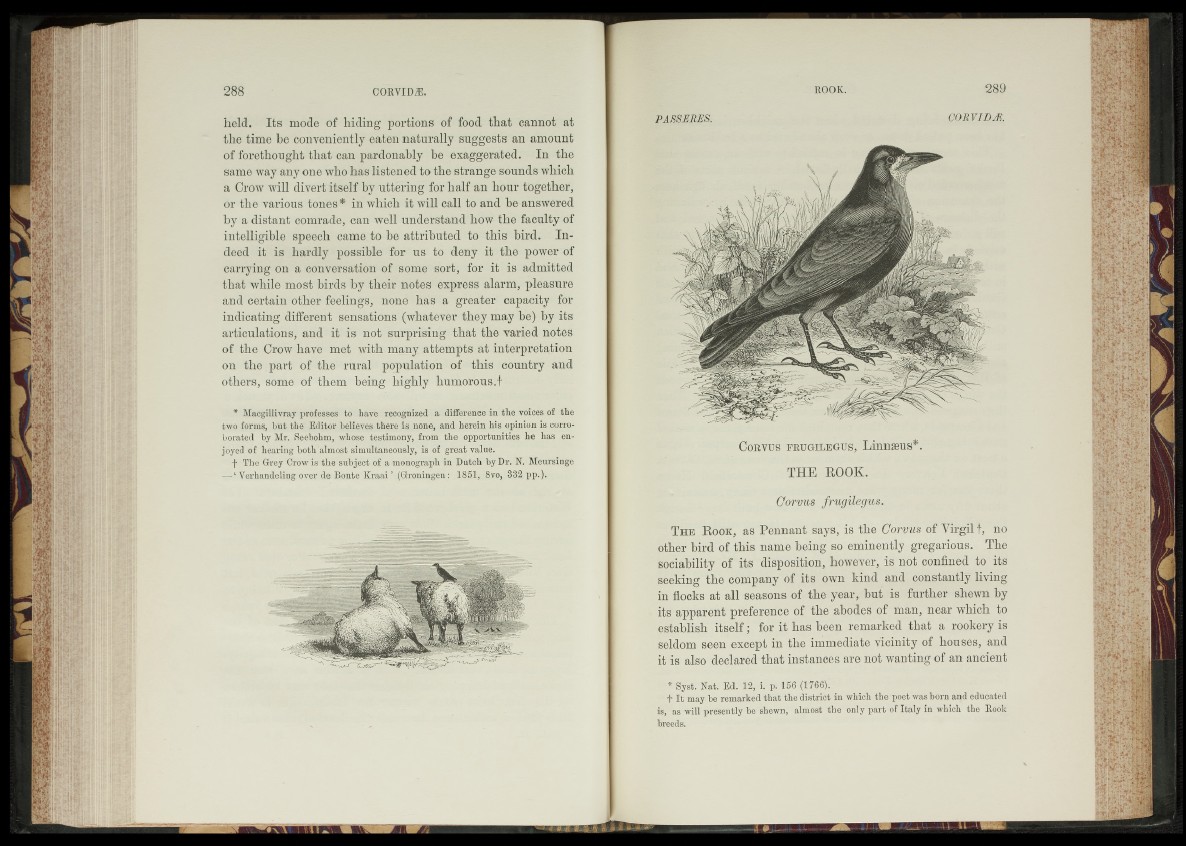
held. Its mode of hiding portions of food that cannot at
the time be conveniently eaten naturally suggests an amount
of forethought that can pardonably be exaggerated. In the
same way any one who has listened to the strange sounds which
a Crow will divert itself by uttering for half an hour together,
or the various tones* in which it will call to and be answered
by a distant comrade, can well understand how the faculty of
intelligible speech came to be attributed to this bird. In deed
it is hardly possible for us to deny it the power of
carrying on a conversation of some sort, for it is admitted
that while most birds by their notes express alarm, pleasure
and certain other feelings, none has a greater capacity for
indicating different sensations (whatever they may be) by its
articulations, and it is not surprising that the varied notes
of the Crow have met with many attempts at interpretation
on the part of the rural population of this country and
others, some of them being highly humorous.f
* Macgillivray professes to have recognized a difference in the voices of the
two forms, hut the Editor believes there is none, and herein his opinion is corroborated
by Mr. Reebohm, whose testimony, from the opportunities he has enjoyed
of hearing both almost simultaneously, is of great value.
j- The Grey Crow is the subject of a monograph in Dutch by Dr. N. Meursinge
—1 Verhandeling over de Bonte Kraai ’ (Groningen: 1851, 8vo, 332 pp.).
C orvus FRUGILEGUS, Linnseus*.
THE ROOK.
Corvus frugilegus.
The Rook, as Pennant says, is the Corvus of Virgil f, no
other bird of this name being so eminently gregarious. The
sociability of its disposition, however, is not confined to its
seeking the company of its own kind and constantly living
in flocks at all seasons of the year, but is further shewn by
its apparent preference of the abodes of man, near which to
establish itself; for it has been remarked that a rookery is
seldom seen except in the immediate vicinity of houses, and
it is also declared that instances are not wanting of an ancient
* Syst. Nat. Ed. 12, 1. p. 156 (1766).
f It may be remarked that the district in which the poet was born and educated
is, as will presently be shewn, almost the only part of Italy in which the Rook
breeds.